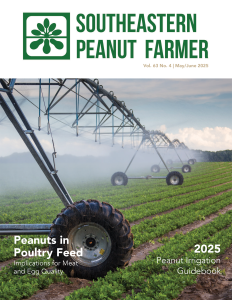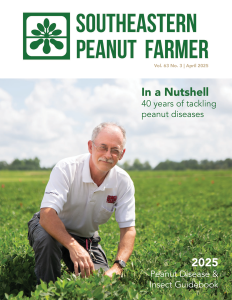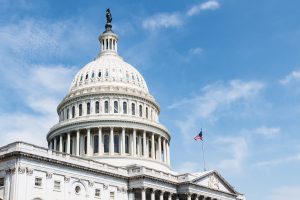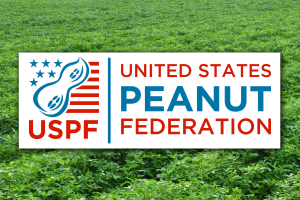 Agriculture Title Includes Key Peanut Provisions
Agriculture Title Includes Key Peanut Provisions
(June 13, 2025 – WASHINGTON, D.C.) The United States Peanut Federation (USPF) is grateful to the U.S. Senate Committee on Agriculture, Nutrition, and Forestry for their efficient and effective work in preparing their version of bill text for the budget legislation package.
U.S. Senate Agriculture Committee Chairman John Boozman’s proposed legislation is similar to the recently passed U.S. House Agriculture Committee legislation that focuses on Investment in Rural America. The proposed Senate bill contains several important provisions for the U.S. peanut industry, including an increase in the Price Loss Coverage (PLC) reference price, an update for base acres, a marketing loan increase, and payment limitations that reflect increased costs of production. This legislation was released by the Committee last night and will soon undergo a parliamentary review process before being considered on the Senate floor.
“This bill takes a commonsense approach to reforming SNAP—cutting waste, increasing state accountability, and helping recipients transition to self-sufficiency through work and training. It’s about being good stewards of taxpayer dollars while giving folks the tools to succeed. At the same time, our farmers and ranchers are facing real challenges, which have been unaddressed for too long. This legislation delivers the risk management tools and updated farm bill safety net they need to keep producing the safest, most abundant and affordable food, fuel, and fiber in the world. It’s an investment in rural America and the future of agriculture,” Chairman Boozman said.
“The United States Peanut Federation (USPF) is pleased to support the Senate Agriculture Committee’s budget reconciliation text which addresses the current challenging economic times for the U.S. peanut industry. Following the passage of the House Agriculture Committee’s budget legislation, the Senate Agriculture Committee worked diligently to complete their version of the legislation, which includes provisions for our industry’s success. Peanut farmers are struggling financially due to the impacts of rising costs of production and low commodity prices. There have been two extensions of the 2018 Farm Bill which, due to antiquated data, provides little in the form of a safety net for producers in today’s marketplace. The Senate Agriculture Committee’s bill addresses these outdated farm bill provisions, updates key pieces of the farm safety net, and supports commodity export, research, and marketing efforts. This bill assures that growers, agribusinesses, and rural communities can move forward with confidence in farm policy for the foreseeable future,” stated USPF Chairman Jamie Brown.
“Peanut growers continue to face challenges as costs of production have long outpaced market prices. Unfortunately, peanut growers have seen no signs of hope for improvement in the 2025 crop nor the 2026 crop year. The U.S. Senate Agriculture Committee’s budget package contains our industry’s top policy priorities. We are thankful for the urgency in releasing this legislative text and are pleased to support the Committee’s bill. We encourage the U.S. Senate to pass the full reconciliation package, including the Agriculture Committee’s provisions,” commented Joe Boddiford, Chairman of the Georgia Peanut Commission.
Alabama Peanut Producers Association President Carl Sanders stated, “The U.S. Senate Agriculture Committee’s proposed budget legislation is very important to Alabama peanut growers. Capitol Hill has listened to the peanut industry’s concerns about the current economic conditions, and we appreciate how the Committee has worked to address them. We believe the peanut provisions included in this budget legislation package are the peanut industry’s best opportunity to address significant financial conditions for growers as soon as possible.”
###
The United States Peanut Federation (USPF) is comprised of the Southern Peanut Farmers Federation, the American Peanut Shellers Association, and the National Peanut Buying Points Association. USPF serves as a unified voice in Washington D.C. for all sectors of the peanut industry and advocates actively for strong agricultural policy. For additional information, contact Lorene Parker at (202) 543-7464 or by emailing lparker@reddingfirm.com.


 (Aug. 25, 2025 – WASHINGTON, D.C.) Last week, the White House released a statement regarding the Framework on an Agreement on Reciprocal, Fair, and Balanced Trade (“Framework Agreement”) made by the United States (U.S.) and the European Union (EU).
(Aug. 25, 2025 – WASHINGTON, D.C.) Last week, the White House released a statement regarding the Framework on an Agreement on Reciprocal, Fair, and Balanced Trade (“Framework Agreement”) made by the United States (U.S.) and the European Union (EU).
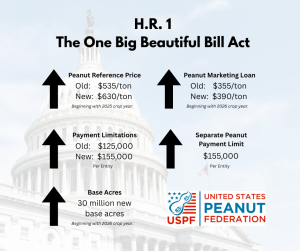 Legislation Includes Key Peanut Provisions
Legislation Includes Key Peanut Provisions